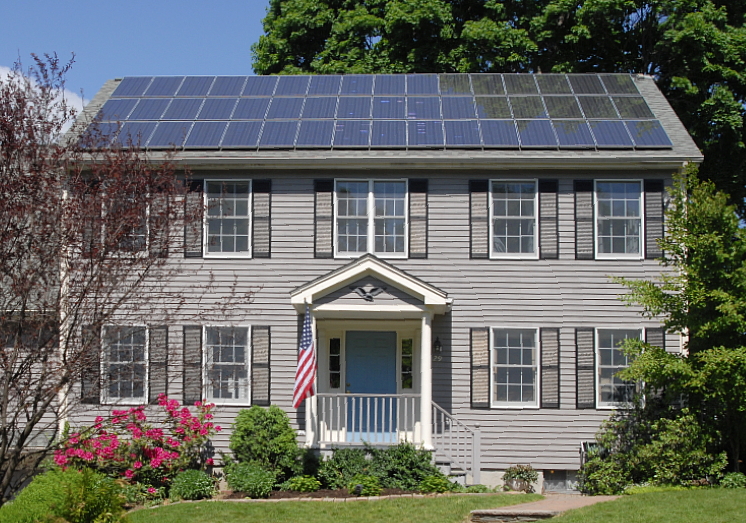
A home is the biggest investment people usually make during their lifetimes. It’s surprisingly easy to find out how much money a solar home can save in terms of household or small business expenses.
Have you ever thought of a solar home as a micro-power plant? Considering the ever-quickening march of utility bills, maybe you’ll welcome the concept. It’s not as far away as it looks.
Many of us are likely continue using and paying for power in more or less the same old way for a while—but acceleration of distributed energy resources like solar and wind recently is beginning to alter the traditional relationship between utilities and residential consumers. Government regulators have also begun to take note of solar homes.
Homeowners and small businesses have led the movement by purchasing or leasing rooftop solar photovoltaic installations. As you may know, the technology has grown dramatically over the past decade. From 400 MW in 2009 to nearly 2.4 GW by the end of last year, it has multiplied sixfold. Nationwide, solar home system prices dropped about 8% in 2013 alone. This steady and impressive growth is causing everyone concerned with solar to look at the technology in different ways.
And it’s not only subsidies and tax incentives driving the solar home movement these days. Competition among installers, affordable financing measures, leasing or utility ownership plans, and public acceptance and enthusiasm have all begun to play a part, spurring positive regulatory trends in states like New York, Massachusetts, and California. Savvy real estate developers and other investors can see the writing on the wall.
Residential and small commercial customers are beginning to generate power from their own energy—mostly from solar PV panels—and to sell the surplus they produce back to their utilities. New developments in batteries, doubling up on the battery power of electric vehicles (vehicle-to-home or vehicle-to-grid), and better home energy management through “smart home” innovations like network-based heating, cooling, and lighting management will continue to improve the savings picture for local solar users. Even within 10 years, says the Rocky Mountain Institute, we may look forward to having economical “utilities in a box.”
This development signals a shift in the way we look at the electricity equation. Instead of being one-way consumers of electricity supplied by power plants connected to the vast grid system, people who choose solar homes become generators of electricity. They have the power to share or sell it as well as to use it onsite. In fact, buildings with solar have become micro-power plants.
How will this affect the nation’s utilities? Traditional power companies used to see distributed solar only in terms of reduced demand for the electricity they historically monopolized. Some, like WE Energies in Wisconsin, are still fighting back by limiting net metering, imposing fees on grid use, or actually lobbying government to tax or outlaw rooftop systems, as has happened in Florida and elsewhere.
However, expansion of rooftop solar into micro-power plants is not a threat to the average ratepayer, only to investors and shareholders of myopic utilities. Power companies with an eye to the future are working on new business models to support and capitalize on the shift to distributed energies. They are offering value-added products and services. They’re starting to incorporate energy efficiency into their operations by positive changes like reducing power losses through grid transmission. The best are working toward equitable solutions such as microsynchrophasor technology with the other stakeholders in the energy process—fuel suppliers, business, government, and people like you and me.
Leave a Reply
Solar Savings Calculator
Get the facts. Find out exactly how much solar will save you, including which Tax and Financial programs you qualify for!







